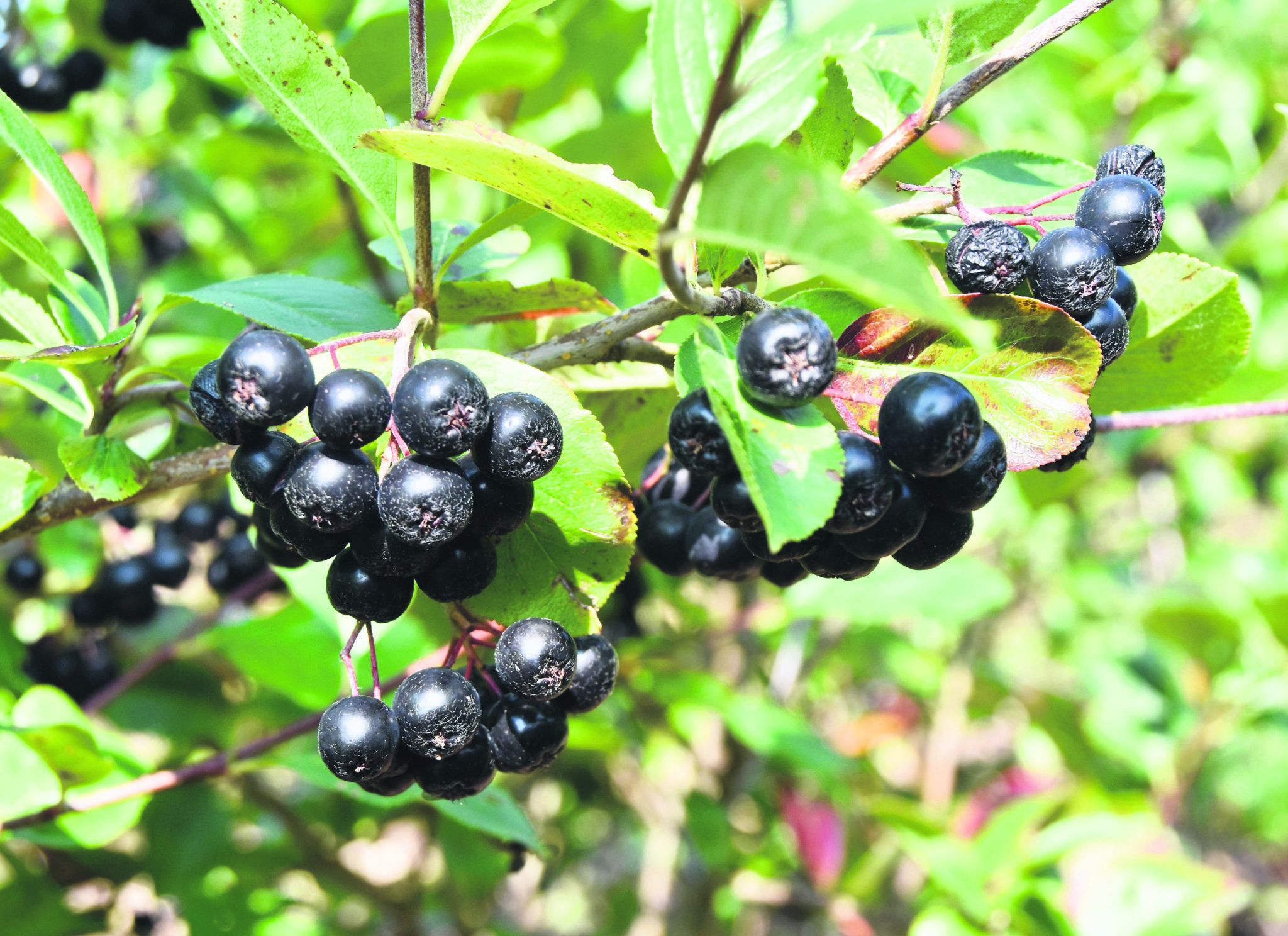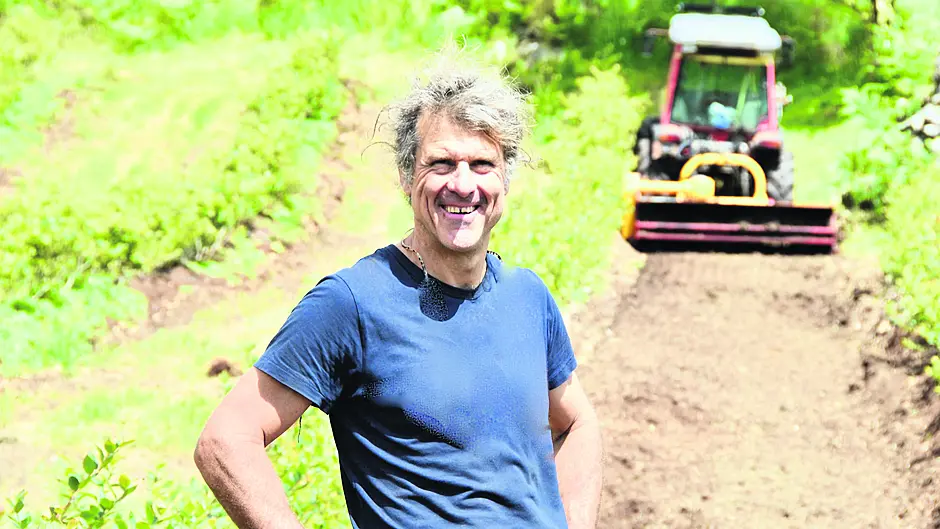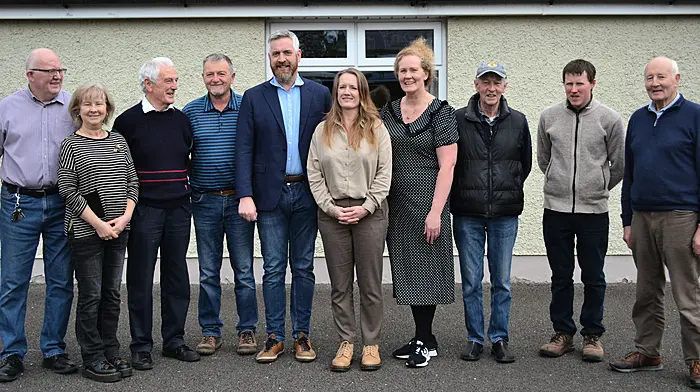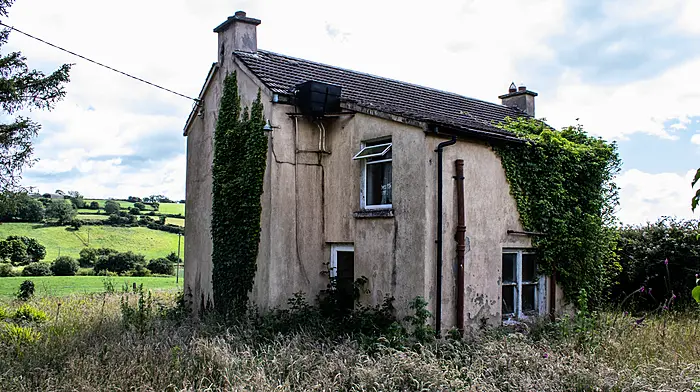Move over blueberries, there’s a new superfood in town and it’s growing on a West Cork mountain, as farmer and medic Steve Collins has discovered.
THE new ‘hero’ berry is the aronia berry and even though it’s native to North America, it’s thriving on the windswept slopes of Cnoc Buí, Cork’s highest mountain between Bantry and Glengarriff.
 The disease fighting aronia berries.
The disease fighting aronia berries.
Dr Steve Collins, a pioneer of regenerative agriculture, planted over 2,000 aronia bushes on his 54-hectare, organically certified hill farm called Derry Duff, with plans to expand.
He’s also a medical doctor with an additional doctorate in nutrition and a global expert in the treatment of starvation, who for over 30 years worked to alleviate famine.
He has now switched his focus and expertise to metabolic syndrome in the developed world which over 30% of Irish people live with. The syndrome refers to a cluster of conditions including obesity, high blood pressure, bad blood fats, raised fasting blood sugar. It is a major risk factor for heart attacks, dementia, diabetes, strokes and some cancers.
Aronia berries are packed with compounds with powerful antioxidant properties called polyphenols (three times higher than blueberries) which can both prevent and even help reverse these conditions, says Steve. They also help with chronic inflammation, an important driver of ageing.
With this knowledge, in 2019 he took a chance and planted the wind-resistant aronia bushes in thin, rocky soil normally used for the grazing of sheep, and the results have been incredible.
‘I planted them on an acre where you might raise a mountain lamb and make say €50 a year. Last year I harvested €1,500 worth of berries and made €1,000 profit,’ said Steve.
He has also set up a company called PhyterBerry and, with the help of Teagasc, is creating a series of aronia berry products including juices and powders which are available in health shops, including Organico in Bantry.
 The range of products being produced by Steve’s berries. Right: Dr Steve Collins who is growing blueberries in West Cork with presenter Michael Kelly.
The range of products being produced by Steve’s berries. Right: Dr Steve Collins who is growing blueberries in West Cork with presenter Michael Kelly.
Already he said demand for Phyterberry aronia has outgrown the capacity to produce, and they have had to import berries from an organic farm in Poland with plans to triple production in the next few years.
‘Lots of land in West Cork would be suitable for this,’ he said. ‘To meet legally binding emission targets the national herd must decrease, and aronia is something farmers could diversify into which is far more profitable than forestry.’
 Rows of berries being grown at high altitude.
Rows of berries being grown at high altitude.
As well as the health benefits, aronia berries have environmental benefits.
‘Their deep roots store carbon in the soil, and essentially will create soil in poor mountain land,’ said Steve.
Steve and his wife Claire, who came to Derry Duff in 2005, also grow 8,000 blueberry plants on marginal land, have a tree nursery, and keep 22 Dexter cattle, mainly to produce manure to fertilise the plants.
Steve featured in the first episode of new RTÉ series on Ireland’s food sustainability.
 Dr Steve Collins who is growing blueberries in West Cork with presenter Michael Kelly.
Dr Steve Collins who is growing blueberries in West Cork with presenter Michael Kelly.
Called Food Matters, it explores how the food system is a major contributor to the climate change emergency and sees presenter and GIY (Grow it Yourself) founder Michael Kelly travel throughout the country, meeting farmers, food producers, food experts, climate experts and chefs.
He also talks to economists, ecologists and activists as he digs deep to uncover the complexity of the Irish food system and how it works, delivers and impacts the environment.
‘The food system is a major contributor to the climate emergency, and the choices we make each day around food can be some of the most compelling pieces of climate action we can take in our lives,’ said Michael. ‘There are inspiring solutions to the problems in our food system happening right under our noses. In Food Matters I travel around Ireland exploring these issues and meeting the people and projects that can help change the food system, one meal at a time.’







